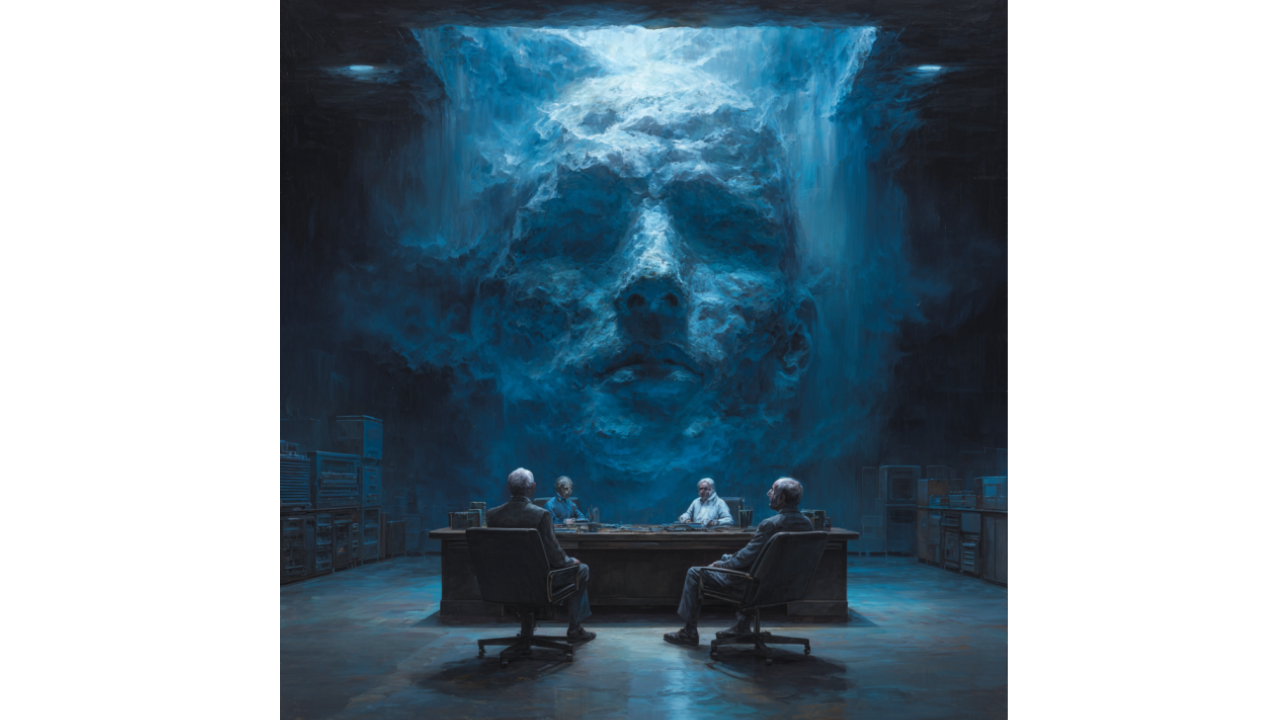Reuters/Ipsos Poll Showing Deep Concern About Permanent Workforce Displacement
While 4,446 respondents are sweating about robot overlords stealing their paychecks, the actual data tells a wildly different story about what's...
-Jun-30-2025-01-22-24-5189-PM.png)
The AI job apocalypse was supposed to be biblical by now. Mass unemployment, entire industries decimated, humans shuffling through breadlines while robots counted their profits. Instead, we got something far more interesting: a renaissance.
According to exclusive data from Upwork shared first with Axios, freelance earnings from AI jobs are up 25% year-over-year, with AI-skilled freelancers earning over 40% more per hour than their traditional counterparts. This isn't the dystopian future we were promised—it's the opposite. While everyone was busy writing AI's obituary for human employment, the smart money was learning to dance with the machines.
The Premium Reality: When Humans Become More Valuable, Not Less
The numbers emerging from Upwork's marketplace data tell a story that should make futurists blush. Kelly Monahan, manager of the Upwork Research Institute, explains that these wage premiums aren't going to random people who stumbled into AI tools—they're accruing to professionals who "already had experience in that particular field" and are now "augmenting that work with generative AI."
This is the key insight everyone missed: AI isn't replacing expertise; it's amplifying it. The machine learning expert who adds generative AI to their toolkit isn't competing with ChatGPT—they're conducting it. The graphic designer who masters AI image generation isn't being replaced by Midjourney—they're becoming its director.
Current data supports this amplification effect. 91% of companies using or planning to use AI in 2024 will hire new employees in 2025, and 96% state that having AI skills will be beneficial for candidates. We're not witnessing job destruction; we're watching the birth of a new labor aristocracy.
Upwork data shows that managers still trust humans working alone and humans working with AI over AI-only outputs. That trust gap isn't shrinking—it's widening. Business leaders have discovered what every parent knows: just because something can technically do a task doesn't mean you trust it to do it unsupervised.
This creates what we're calling the "human-in-the-loop premium"—a wage bump that comes not from what you know, but from how confidently you can guide, edit, and take responsibility for AI output. Workers using AI for augmentation outnumber those using it for automation by more than 2 to 1, a trend that matches data from Anthropic and suggests we're building collaborative intelligence rather than replacement intelligence.
The emergence of what Upwork calls "the generalist"—workers who can code and design using AI tools—represents something unprecedented: the democratization of technical skills without the democratization of expertise. These aren't programmers who learned design; they're creative problem-solvers who learned to speak to machines.
Perhaps the most fascinating development is the rise of "vibe coding"—using AI to code without traditional programming knowledge. This isn't about replacing developers; it's about expanding the definition of who can be a developer. Freelancers with jobs requiring coding skills for at least 25% of the work now earn 11% more for the same jobs compared to November 2022, when ChatGPT launched.
This premium exists because vibe coding creates demand for a new skill set: the ability to think computationally without thinking like a computer. It's the difference between knowing syntax and knowing intent, between debugging code and debugging ideas.
The implications ripple beyond tech. When anyone can prototype an app, the bottleneck shifts from implementation to imagination. When anyone can generate marketing copy, the premium goes to those who understand strategy. When anyone can create graphics, the value migrates to those who understand brand.
The persistent doomsday narrative reveals more about our collective psyche than our economic future. 34% of workers believe AI will lead to job displacement in the next five years, yet only 14% of workers have actually experienced job displacement due to AI. The fear vastly exceeds the reality.
This fear has created a competitive advantage for early adopters. While 48% of workers express concern about AI threatening their job security, the other 52% are quietly building skills that make them indispensable. They're not just learning to use AI—they're learning to think with it.
Dario Amodei's prediction that AI could eliminate half of all entry-level white-collar jobs within five years isn't necessarily wrong—it's incomplete. Those jobs aren't disappearing; they're evolving. The entry-level position of the future isn't filing papers or transcribing meetings; it's curating AI outputs and managing digital workflows.
The most successful professionals in this transition aren't the ones resisting AI or the ones surrendering to it—they're the ones creating arbitrage between human judgment and machine capability. PwC's 2025 Global AI Jobs Barometer shows a 43% wage premium for AI skills, up from 25% last year.
This premium exists because AI amplifies human capabilities in ways that make both more valuable. A market researcher who can prompt AI to analyze datasets becomes a strategic advisor. A copywriter who can direct AI to generate variations becomes a creative director. A customer service representative who can orchestrate AI responses becomes a customer experience designer.
The pattern is clear: AI doesn't replace human work—it abstracts it to a higher level. The question isn't whether your job will be automated; it's whether you'll be smart enough to climb the abstraction ladder.
The binary choice facing every professional is stark: master AI or become irrelevant. But "mastering" AI isn't about becoming a prompt engineer or memorizing ChatGPT commands. It's about developing the meta-skill of human-AI collaboration.
This means learning to:
The companies and individuals who succeed in this transition won't be those who build the best AI—they'll be those who build the best human-AI teams.
The data is clear: AI isn't destroying jobs; it's creating a new class of augmented professionals who command premium wages for premium skills. Freelance earnings from AI jobs are up 25% year-over-year, while traditional work stagnates.
This isn't about humans versus machines—it's about amplified humans versus unaugmented humans. The wage premium for AI skills isn't a temporary market distortion; it's the new normal for professionals who can think at the intersection of human creativity and machine capability.
The AI job apocalypse was always a myth. The real story is simpler and more exciting: we're witnessing the birth of a new form of human potential. The question isn't whether AI will take your job—it's whether you'll be smart enough to take AI's help.
Ready to join the ranks of amplified professionals? Winsome Marketing's growth experts understand how AI is reshaping every industry and every role. We help companies and individuals navigate this transformation intelligently, building strategies that leverage AI's power while amplifying human creativity and judgment. Because in a world where AI is table stakes, the competitive advantage belongs to those who know how to use it with wisdom—and convert that wisdom into measurable growth.

While 4,446 respondents are sweating about robot overlords stealing their paychecks, the actual data tells a wildly different story about what's...

The death knell for tech job security just rang, and it came from an unexpected source. TCS—Tata Consultancy Services—has announced the elimination...
-3.png)
1 min read
We're drowning in a sea of AI anxiety. Every week brings fresh predictions about artificial intelligence obliterating jobs, with forecasts ranging...